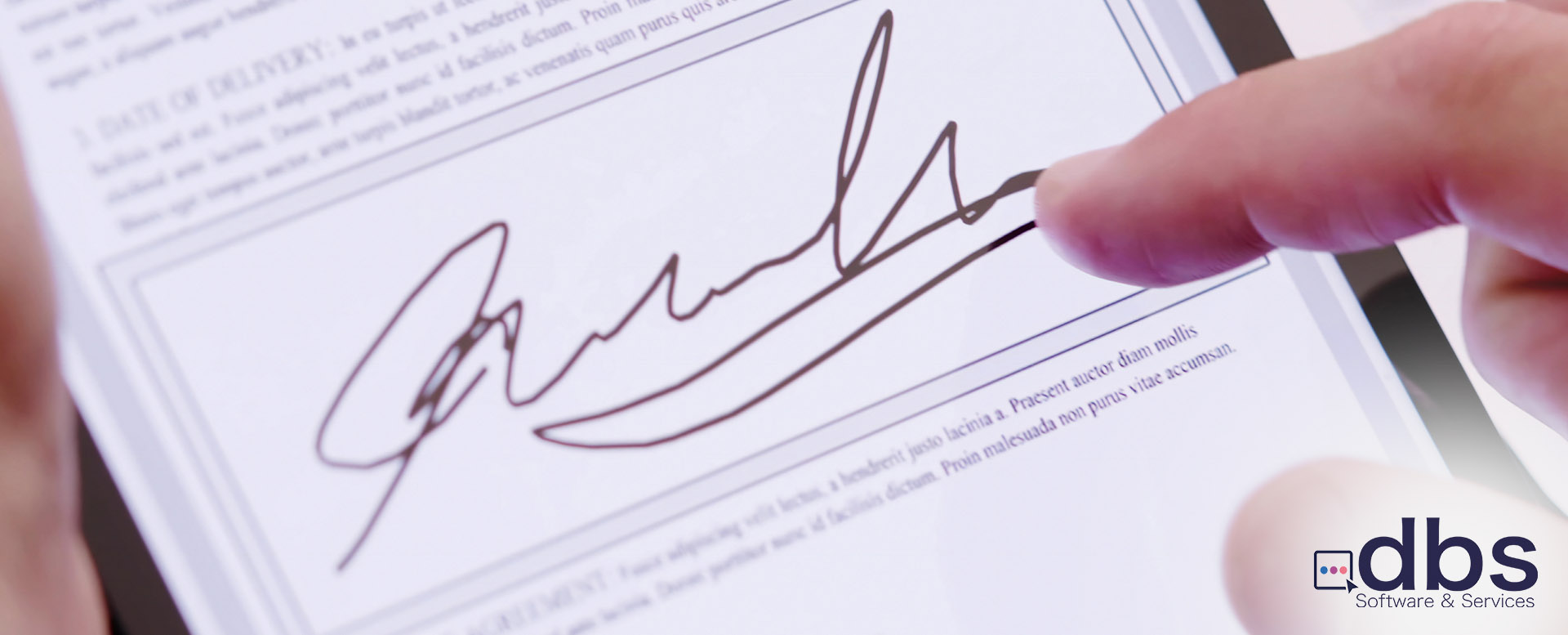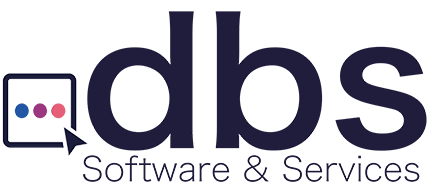
The Rising Cost of E-Signature Platforms: Why Enterprise E-Forms May Be A Better Choice
Electronic signatures have become an indispensable tool for organizations of all types and sizes. They help streamline processes, reduce paper waste, and accelerate agreement cycles. There are many traditional e-signature platforms available in the market and for small businesses they can often be used at little cost. For larger organizations, however, the “per envelope” or “per transaction” pricing models that most traditional e-signature platforms use can quickly escalate ongoing operational costs to unsustainable levels.
What if there was a way to capture legally binding electronic signatures, integrate them seamlessly into your existing workflows, without the recurring signature fees? Enter enterprise e-forms platforms with built-in workflow capabilities. This blog post will explore the often-overlooked high costs associated with traditional e-signature platforms and make a compelling case for how a comprehensive enterprise e-forms solution can offer a more cost-effective and integrated approach to electronic signatures.
The Traditional E-Signature Enigma: Convenience at a Premium
The traditional e-signature platforms have been well established for some time. Users know how basic signature workflows work. Furthermore, the legal enforceability of the signatures from these platforms has been established, and as such, they are generally trusted for many use cases.
However, the “per envelope” or “per transaction” pricing model, while seemingly straightforward at first glance, can become a significant financial burden. The following are ways in which these hidden costs can add up:
- Escalating Transaction Fees:Every document sent for signature, regardless of its complexity or the number of signers, typically counts as an “envelope” or “transaction.” For organizations that process hundreds or even thousands of signature documents, transaction fees quickly accumulate. A seemingly small per-transaction fee can mushroom into a substantial line item in the annual budget.
- Tiered Pricing Limitations:Some of these platforms also offer tiered pricing for larger organizations instead of a flat fee per transaction. However, this can lead to organizations monitoring their usage, being forced into upgrading to a higher tier, even for minor overage of their current limit. This creates an unpredictable cost structure.
- Limited Customization and Integration:While some traditional platforms offer APIs for integration, custom integration for specific business processes normally require additional development effort and cost. This is because their primary focus is on the signature transaction itself, not necessarily on the document’s entire lifecycle.
- Lack of Form Intelligence:Traditional e-signature platforms are excellent for signing existing However, they are not designed to be dynamic form builders that capture data intelligently, validate inputs, or branch logic based on user responses before the signature stage. This means organizations are often forced to use another tool to create forms and workflows, and once completed export them to the e-signature platform for signing, adding another layer of complexity and potential cost.
The Enterprise E-Forms Advantage: Signatures Without the Sticker Shock
An enterprise e-forms platform with robust workflow capabilities fundamentally shifts the paradigm of electronic signatures. Instead of paying for signatures, you leverage a platform that you already own or license for a broader set of functionalities.
Here’s how an integrated e-forms solution can provide a more cost-effective and efficient approach:
- Unlimited Signatures at No Extra Cost:This is the game-changer. Once you’ve invested in an enterprise e-forms and workflow platform, the ability to collect electronic signatures is typically an intrinsic feature, not an add-on with recurring fees. Whether you process ten forms or ten thousand, the cost for the electronic signature component remains constant as part of your overall platform investment.
- Holistic Form Lifecycle Management:E-forms platforms are designed to manage the entire lifecycle of a form. This includes:
- Dynamic Form Building:Create intelligent forms with conditional logic, data validation, calculations, and rich input fields.
- Automated Workflows:The workflow for these platforms can be pre-established based on the rules of the organization. This includes routing forms, assigning tasks, and triggering notifications.
- Data Capture and Integration:Capture structured data directly into your backend systems (CRM, ERP, HRIS) automatically. This reduces the chances of human error that may occur with manual data entry while also saving time.
- Secure Storage and Audit Trails:Completed forms and their associated audit trails will be stored securely within your own controlled network, ensuring easy accessibility and rule compliance.
- Integrated E-Signatures:Seamlessly embed signature fields directly into your forms. Once the form is filled out and approved through the workflow, the final step can be a legally compliant electronic signature, all within the same platform.
- Other advanced features: In addition to capturing signatures directly from the device itself, E-forms platforms often offer integrations with dedicated signature pads that also capture signature forensics. As well as integrations with bank payment gateways, for quickly capturing and processing payments.
- Improved Compliance and Governance:With signatures embedded within your own controlled forms and workflows, you have greater oversight of the entire process, making it easier to meet internal governance policies and external regulatory requirements. The audit trail for the entire form, including the signature, resides within your system.
- Faster Development and Deployment:Modern e-forms platforms often feature low-code/no-code development environments, empowering business users to create and deploy forms and workflows quickly, without heavy reliance on IT. This ease of use can further reduce operational costs and ensure the latest updates.
When Traditional E-Signature Platforms Still Make Sense
In some specific situations, the traditional e-signature platforms may be better suited for the job:
- Ad-Hoc External Signatures:For infrequent, one-off documents that need to be signed by external parties who don’t interact with your internal systems, a traditional e-signature platform remains a quick and easy solution.
- Small Businesses with Low Volume:If your organization processes a very limited number of signed documents per month, the basic tiers of a traditional e-signature platform might be perfectly adequate and cost-effective.
- Standard for Specific Industries:In some industries, using a traditional e-signature platform has become the de facto standard, and partners or customers might expect to receive documents via that platform.
- Special Use Cases: There are some use cases where integrating a traditional e-signature platform with another solution for document generation or automation may justify it.
The Strategic Shift: From Transactional to Transformational
When an organization needs to make a decision between a traditional e-signature platform and an enterprise e-forms platform for electronic signatures, the decision needs to be made on the basis of the organization’s needs from the platform. Are you looking for a transactional tool to simply get documents signed, or are you seeking a transformational solution that optimizes your entire document and data capture processes?
For organizations burdened by rising traditional e-signature platform fees, especially those with complex, high-volume internal and external forms, the shift to an enterprise e-forms and workflow platform is not just about saving money on signatures. It’s about achieving greater efficiency, improving data quality, enhancing compliance, and ultimately, gaining better control over your core business processes.
Imagine a world where every HR onboarding packet, every sales order, every expense report, and every IT request not only flows seamlessly through an automated workflow but also captures legally binding electronic signatures without incurring an additional per-envelope charge. This is the promise of enterprise e-forms – a promise of integrated efficiency and predictable costs, allowing your business to sign more, spend less, and achieve more.
dbs LiveForms™ is an excellent example of an enterprise-grade eForms with Workflows solution that is leading the industry with unlimited electronic signatures included in its subscription. If you would like to learn more about how innovative organizations and institutions are using Liveforms to minimize electronic signature costs, see use cases here, and click here to get started with Liveforms in your organization.

dbs Software & Services (dbs) is a long-standing provider of document management and process automation solutions for education and business, and the exclusive provider of Tessi Docubase® in North America.
Tessi Docubase® is an enterprise-grade modular, secure, and easy-to-use document management system that seamlessly integrates with Business Information Systems. Its secure architecture and a broad range of features make it the perfect solution for a wide range of enterprises and use cases.
dbs LiveForms, is a low-code Business Process Automation platform. Its sole focus is simplifying complex processes by automating repetitive steps – from data capture to alerts, notifications, email confirmations, and everything in between quickly, without involving a programmer.
dbs eSign is a cloud-based electronic signature solution that allows users to manage the signing process for a document, from upload to signing and sealing, from any mobile device or computer.


Leave A Comment